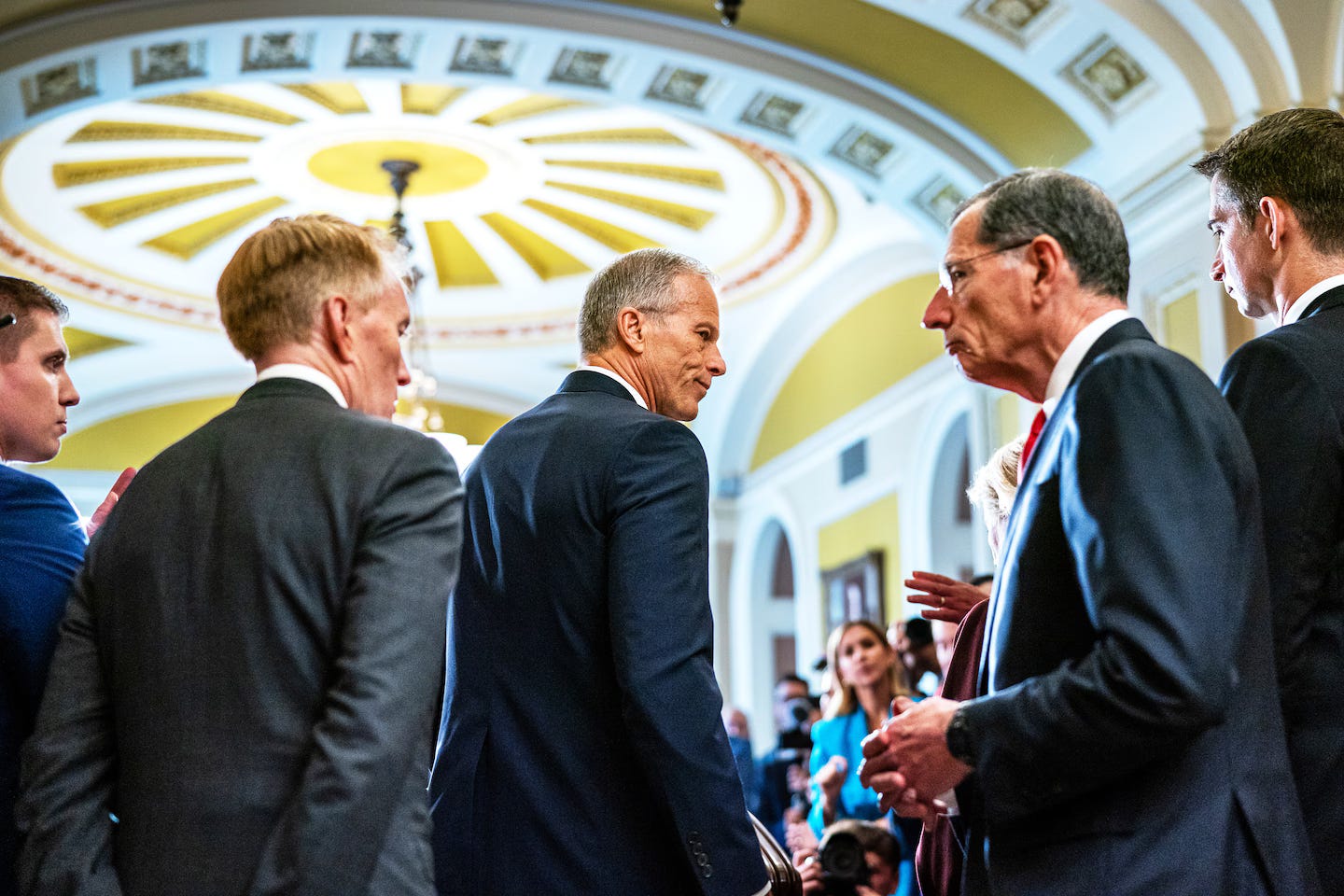.png)
This piece was originally published on Ron Fournier's Substack.
Here are two breathtaking pieces of political news that you may not read anywhere else:
You read that right. A year out from Election Day 2026, we know the outcomes of a vast majority of state and national legislative races — and odds are strong that your vote will be meaningless. This is the best-kept secret in American politics, a crime against democracy, and if you read this full newsletter you’ll learn how to solve it.
“The 2026 midterms are poised to be the least competitive in modern American history,” Nick Troiano told me. He is executive director of Unite America, a philanthropic venture fund that invests in nonpartisan election reform. (After following Troiano’s work for years as a political columnist, I became a part-time consultant to Unite America.)
Today, Unite America’s research arm released new findings: “Election Day 2026 is more than a year away, but 90% of U.S. House and 80% of U.S. Senate races are already decided.” These are races that:
“We estimate that only 15% of voters will cast a meaningful vote in deciding who gets elected,” the Unite America Institute concluded.
Troiano calls this the “Primary Problem” — a flaw in the U.S. election system that gives outsized powers to partisan voters who in turn demand fealty from the politicians they elect. Members of Congress live in fear of “being primaried” — losing their seats in primary elections because they are not liberal or conservative enough. Most legislative candidates don’t care about general elections because general elections don’t determine who serves in Congress.
And so, we have a system that incentivize politicians to be extremists.
The government shutdown. The gerrymandering wars. The rise of political violence. These and multiple other sociopolitical challenges are the result of a U.S. election system that rewards extremism.
Take the shutdown, for example: The dean of the Capitol press corps, Paul Kane of The Washington Post, wrote recently that Senate leaders had given their members great leeway to wage war against each other and use the U.S. government as a weapon.
One reason that the leaders have been given such latitude, and that there’s been no momentum toward an ad hoc gang of problem solvers, is that very few senators feel the political pressure that usually comes with calamitous events like a federal agency shutdown.
Most sit in safe seats, many with reelection campaigns a distant concern. Ahead of the 2026 midterm elections, only three senators — Susan Collins (R-Maine), Jon Husted (R-Ohio) and Jon Ossoff (D-Georgia) — are rated by independent handicappers as facing very tough reelection battles.
A few other seats are considered competitive next year, but those are held by senators who’ve decided to retire and therefore do not have the same political pressure to respond if the public breaks clearly against either party.

Here’s the good news: Troiano has a two-part solution to the “primary problem” that is simple and achievable. The Primary Solution:
In practice, this would mean open, all-candidate primaries — where every candidate appears on the same ballot, and every voter can participate. The top finishers, regardless of party, advance to the general election. If more than two candidates advance to the general election, you need an instant runoff, sometimes referred to as ranked-choice voting.
Alaska, California, Louisiana, Nebraska, and Washington use all-candidate primaries. The research is clear: They work. States with all-candidate primaries see more competition, more meaningful votes, lower polarization, higher turnout, and more functional governance.
Contrast to the gridlock and dysfunction of shut-down Washington to the bipartisan legislative majority formed in Alaska that overrode the conservative governor’s veto to pass education investments. In his book, “The Primary Solution,” Troiano explains why Alaska’s top-four nonpartisan primary system is strongly supported by both conservative and liberal lawmakers, who are now free to defy their extremist bases and actually govern together.
Why are voters denied access to taxpayer-funded election? Why are legislative seats granted to candidates who can’t security a majority vote? Majority coalitions and open elections are two fundamentals of democracy.
But not in American today. Not in a political system co-opted by two dominate parties who write election laws to freeze out competition. Complicit in this game are any political reporters who focus strictly on the horserace — which party “wins” the House and Senate — without shining light on an existential primary problem and a practical solution.
“The Political Industrial Complex wants us focused on which party control Congress,” Troiano says, “which distracts us from the fact that no matter who wins, Congress remains a vastly undemocratic institution.”
##
Ron Fournier is a longtime political journalist, including stints as a White House reporter, Associated Press bureau chief, and Atlantic columnist. He currently serves as a part-time media consultant with Unite America.

Stay up-to-date on the latest news and resources from Unite America.